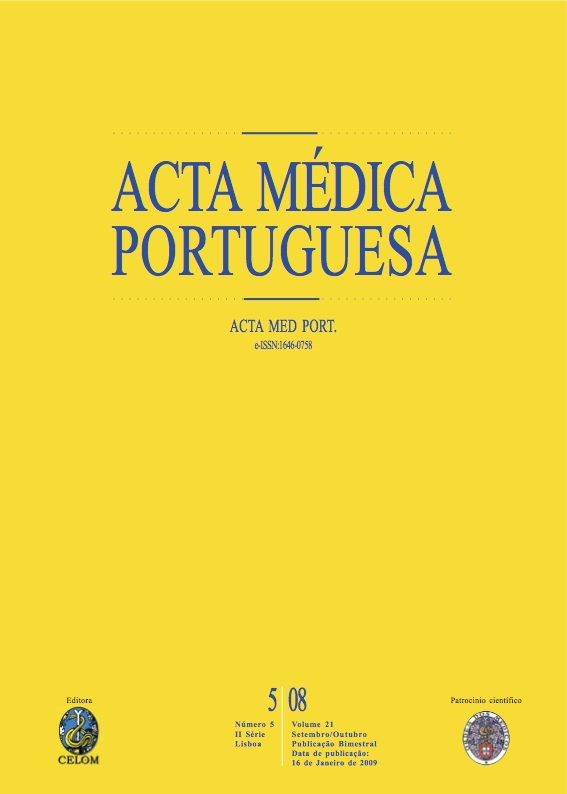Operacionalização para Portugal: critérios de Beers de medicamentos inapropriados nos doentes idosos.
DOI:
https://doi.org/10.20344/amp.1641Resumo
Elderly drug therapy needs special care considering physiopathological alterations of this age group that increase the risk of adverse drug events occurrence and due to the high number of drugs used. Several tools have been created, as tables of drugs and groups of drugs to be avoided in patients 65 years old and over. Beers Criteria of 2002 update is the most used tool.To operationalize Beers Criteria to be used by health care professionals in Portugal.Analysis of the drugs and therapeutic classes included into the Beers Criteria approved for market in Portugal and the identification of other approved substances included in the pharmacological classes mentioned in Beers Criteria. The two tables in the Beers criteria were adapted to substances approved in Portugal, even including other marketed active substances belonging to therapeutic classes mentioned in Beers criteria. Levels of inappropriateness and the potential effects after their use in elderly were also included. In Beers table 1, 34 included substances don't have approval in Portugal, and 4 have different denominations. In Beers table 2, three tricyclic antidepressants, 12 typical antipsychotics, 5 doses for short-action benzodiazepines, and 28 NSAIDs (being two coxibs) were included.The Portuguese operationalization of the Beers Criteria allows the creation of a tool that helps prescribers to choose drugs and doses for a safer prescription to the elderly. These adapted tables allow benchmarking among studies assessing inappropriateness of use of drugs in different countries using Beers Criteria.Downloads
Downloads
Como Citar
Edição
Secção
Licença
Todos os artigos publicados na AMP são de acesso aberto e cumprem os requisitos das agências de financiamento ou instituições académicas. Relativamente à utilização por terceiros a AMP rege-se pelos termos da licença Creative Commons ‘Atribuição – Uso Não-Comercial – (CC-BY-NC)’.
É da responsabilidade do autor obter permissão para reproduzir figuras, tabelas, etc., de outras publicações. Após a aceitação de um artigo, os autores serão convidados a preencher uma “Declaração de Responsabilidade Autoral e Partilha de Direitos de Autor “(http://www.actamedicaportuguesa.com/info/AMP-NormasPublicacao.pdf) e a “Declaração de Potenciais Conflitos de Interesse” (http://www.icmje.org/conflicts-of-interest) do ICMJE. Será enviado um e-mail ao autor correspondente, confirmando a receção do manuscrito.
Após a publicação, os autores ficam autorizados a disponibilizar os seus artigos em repositórios das suas instituições de origem, desde que mencionem sempre onde foram publicados e de acordo com a licença Creative Commons









